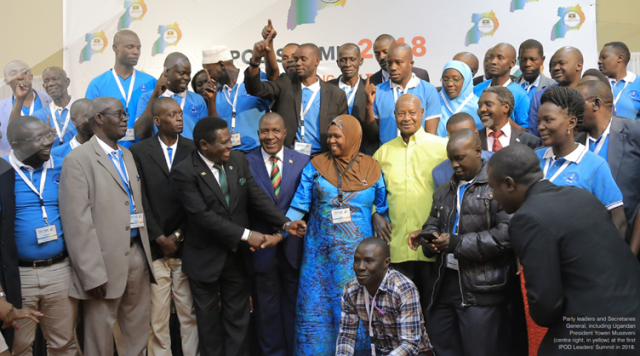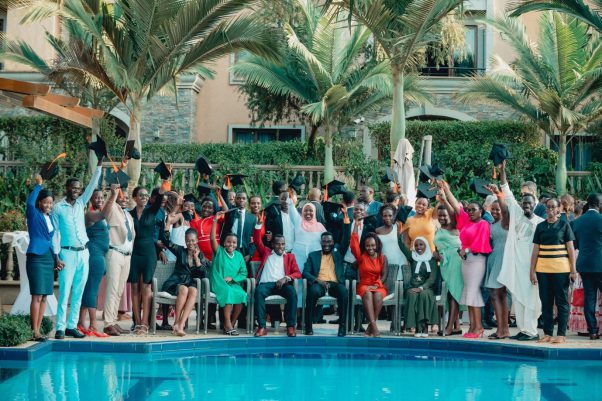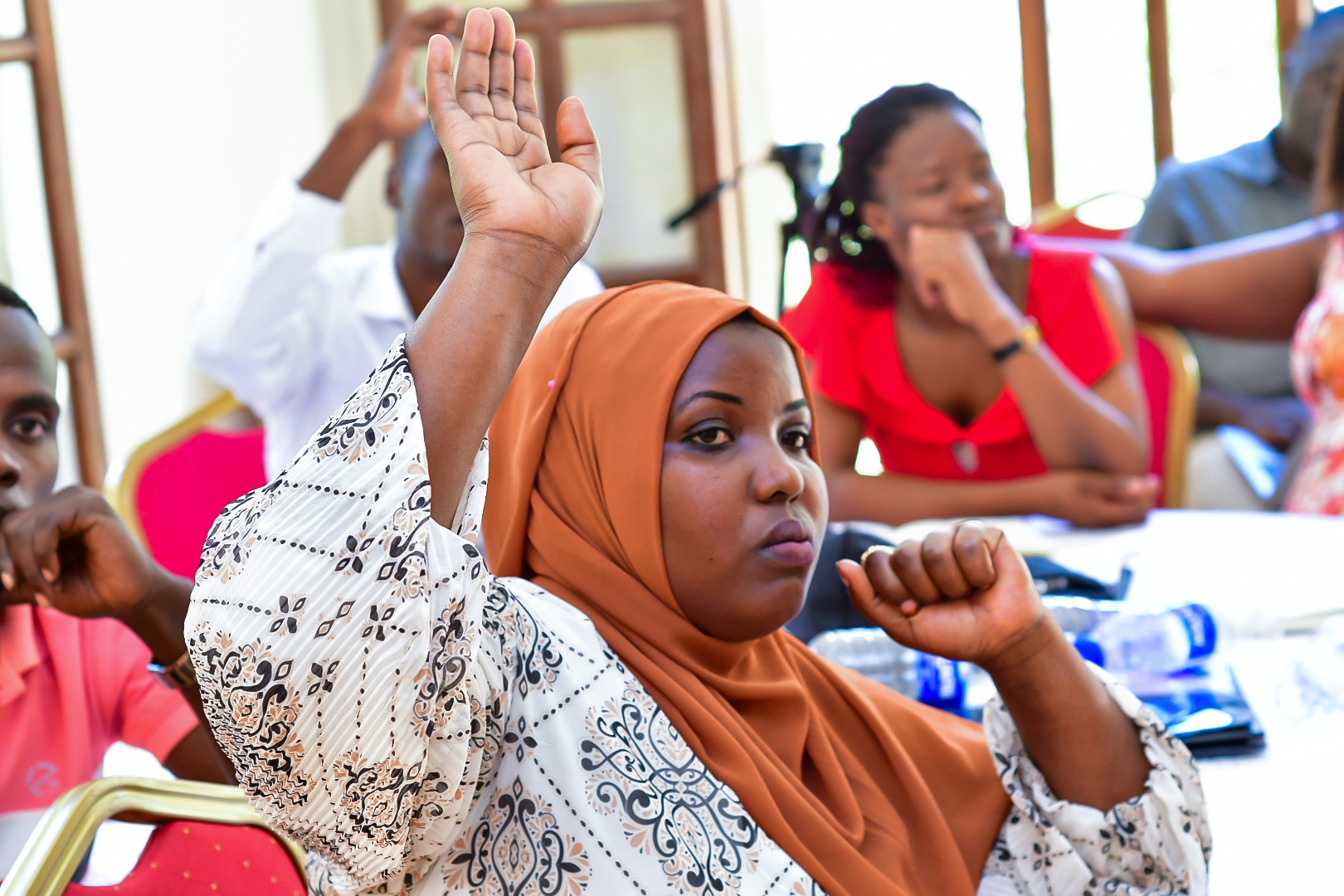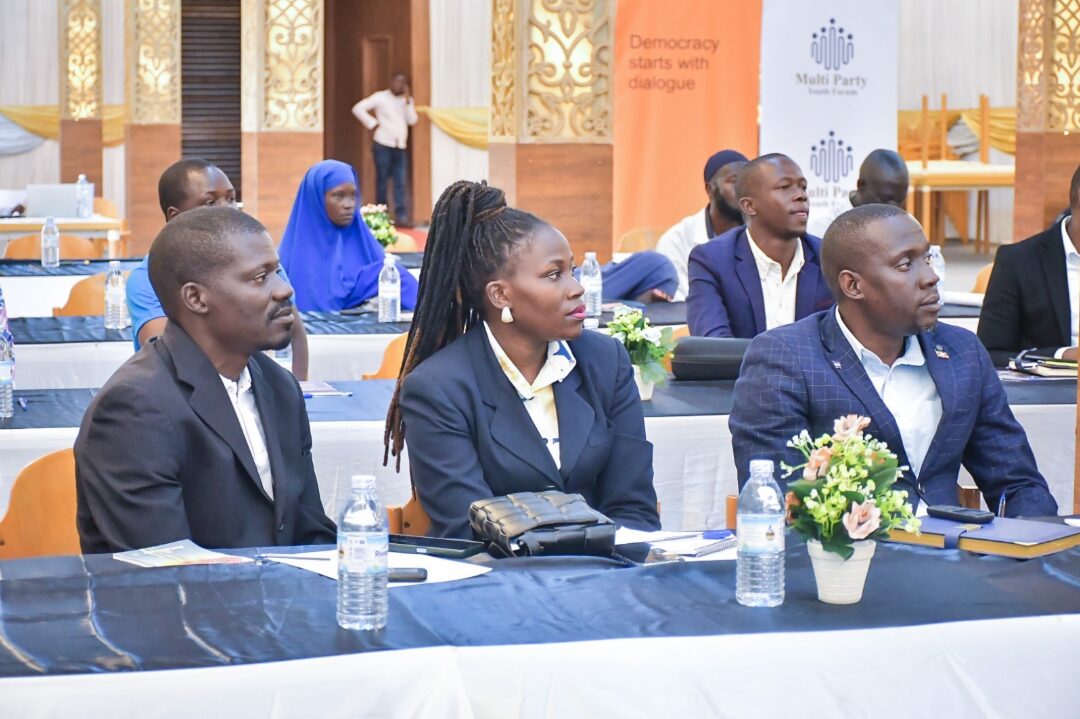From multiparty dialogue to youth engagement: Our evolving strategy in Uganda

What happens when things shift in a country, and you pause to rethink how to make the most meaningful impact?
For the past 15 years, NIMD Uganda has been devoted to strengthening democracy in the country. Over that time, we have built strong relationships with the country’s politicians and political institutions, becoming a trusted name in democracy support.
A commitment to multiparty dialogue
When we first started working in Uganda, our focus was on fostering dialogue among political parties. Just four years earlier, in 2005, a ban on political parties had been lifted, marking the beginning of a long shift to a multiparty political system.
In this new environment, encouraging dialogue offered a more inclusive path to governance. It created space for a range of voices to engage and contribute, strengthening Uganda’s democratic process.
So, when the country’s political parties approached us in 2010, we helped them establish the Interparty Organization for Dialogue (IPOD). This open forum allowed both ruling and opposition parties to come together with an equal voice.

For over a decade, we facilitated multiparty dialogue through IPOD, bringing all parliamentary parties together for regular open discussions. In what was often a tense political landscape, IPOD offered a space where parties could work together, giving smaller parties a vital voice and helping to resolve disputes on key issues like electoral reform and party funding rules.
A time to reflect
In 2022, NIMD had an important opportunity to reflect on our impact in Uganda. IPOD had always been an inclusive forum, with participation from all parties represented in Parliament.
However, with two key opposition parties expressing hesitation to continue due to interparty tensions, we recognized the need to reassess our role in supporting democracy in Uganda.
We hold a core belief in inclusive dialogue: that the process can only succeed when all political parties in Parliament commit to both speaking and listening as they work through the country’s many challenges, respecting their different viewpoints.
At the same time, NIMD itself had changed over the past 10 years. While we started off with a clear focus on political parties, we have since widened our approach, recognizing that trust in democracy relies on ensuring all groups are heard.
With this in mind, we started to look for new avenues to create change, build trust and uphold democracy in Uganda.
Our dedication to youth in politics
As in all our programmes, our success in Uganda would be dependent on our ability to respond to changes in the cultural and political context; constantly evaluating and adapting our approach to ensure lasting impact.
As we explored new opportunities: one theme emerged time and again: The immense potential of young Ugandans to build a more inclusive, transparent and responsive democracy.

Uganda is the second youngest country in the world, with a vibrant, politically engaged youth population. Youth leaders are actively working to shape their country’s democratic processes, and many are involved in advocacy and grassroots activism on issues such as electoral reform, unemployment and human rights.
Our democracy is strongest when it reflects the power and diversity of our youth. With 78% of Uganda’s population under 30, we must ensure that young people have the means and channels to influence politics.
Primus Bahiigi, NIMD Uganda Director
And so, we have turned our focus to harnessing the power held by young people, amplifying their voices, and opening up pathways for them to actively shape their democracy.
We work with political institutions to create more opportunities for youth participation. And we provide training for young political leaders. And, through our Uganda Democracy Academy, participants gain the knowledge, skills and networks needed to engage in political life, uphold democratic values, and drive long-term positive change.

Respecting our roots in dialogue
Even as we renew our focus, NIMD remains committed to our roots. Dialogue is at the heart of our approach. We believe that getting people around the same table – and encouraging openness, respect and consensus-seeking – is the best way to foster trust and collaboration.
That’s why we bring young civic and political leaders together to engage in dialogue in the Multiparty Youth Forum: a platform for cross-party collaboration among young people.
Through this, along with our intergenerational dialogues between established politicians and young leaders, we’re creating real opportunities for youth to shape the political landscape – from uniting their voices behind youth initiatives, to presenting proposals which enhance the meaningful political participation of youth.
As always, our focus in Uganda remains on bringing people together to build consensus across political divides.
Nurturing long-standing relationships
And we still remain devoted to promoting dialogue within Uganda’s political party sphere. Recently, we even provided training for party representatives in dialogue skills. As a result, the Forum for Democratic Change (FDC) and the Democratic Party (DP) have adopted these methods to address internal conflicts. Both parties are making progress in reconciling internal divisions and strengthening unity.
So NIMD is forging its new path in Uganda, constantly reassessing the political landscape and finding avenues to uphold and strengthen democracy. But we remain grounded in our dedication to dialogue, nurturing the relationships we’ve built over the years and staying true to our values of impartiality and inclusiveness.
NIMD’s work in Uganda is funded by the Dutch Ministry of Foreign Affairs under the Strategic Interventions Programme and the Power of Dialogue programme. The Power of Dialogue consortium is made up of NIMD, Gorée Institute, Akina Mama wa Afrika, and Centre des Études Méditerranéennes Internationales, and seeks to enhance collaboration of political and civic actors to participate in accountable political processes.
The Uganda Democracy Academy is implemented as part of the WYDE Civic Engagement programme by the Netherlands Institute for Multiparty Democracy with support from the Westminster Foundation for Democracy and Demo Finland.
WYDE is powered by the European Union and the European Partnership for Democracy (EPD).
Find out more about NIMD’s work in Uganda here.


